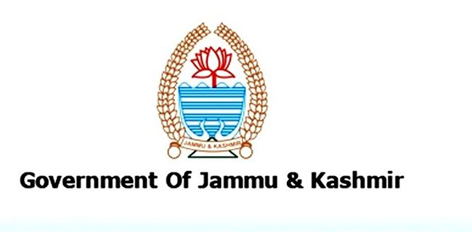Excelsior Correspondent
JAMMU, Jan 5: Government of Union Territory of Jammu and Kashmir today constituted committees in all the 39 Administrative Departments to consider the cases of non-gazetted officials under Article 226 (2) of the Jammu and Kashmir Civil Service Regulations, 1956 which deals with compulsory retirement of the officials on completion of 22 years of qualifying service or on attaining 48 years of age.
Several new provisions were incorporated by the Government in the Article in the month of October last year to ensure efficiency and effectiveness of the Government servants.
Under the new provisions, a detailed mechanism to be followed for compulsory retirement of the Government servants has been defined so that such cases can withstand the judicial scrutiny in case officials declared as ‘dead-wood’ knock at the doors of the court of law against the Government decision.
In order to ensure utmost transparency and neutrality while considering the cases of non-gazetted officials under Article 226(2), the Government has not kept the concerned Administrative Secretary as head of the department-wise Review Committees except in case of Finance, Health and Medical Education and Home Departments.
Financial Commissioner Finance Department Dr Arun Kumar Mehta has been made Chairman of Review Committees of six departments—Administrative Reforms, Inspections, Trainings and Grievance; Higher Education; Election; Finance; Floriculture and Hospitality and Protocol.
Similarly, Financial Commissioner Health and Medical Education Department Atal Dullo has been made Chairman of Review Committees of nine departments namely—Agriculture Production and Farmers Welfare; Animal/ Sheep Husbandry and Fisheries; Cooperative; Health and Medical Education Department; Industries and Commerce, Law, Justice and Parliamentary Affairs; Geology and Mining; Revenue and Horticulture.
Principal Secretary Home Department Shaleen Kabra has been made Chairman of 24 departments—Civil Aviation; Culture; School Education; Youth Services and Sports; Skill Development; Food, Civil Supplies and Consumer Affairs; Forest, Ecology and Environment; General Administration; Home; Housing and Urban Development Department; Information; Information Technology; Labour and Employment; Planning, Development and Monitoring; Power Development; Public Works (R&B); Jal Shakti; Rural Development and Panchayati Raj; Science and Technology; Social Welfare; Tourism; Transport; Disaster Management, Relief, Rehabilitation and Reconstruction and Tribal Affairs.
“The formation of department-wise Review Committees clearly indicates that Government is interested in exercising its powers conferred under Article 226(2) to ensure efficiency and effectiveness of the Government servants”, official sources said.
Article 226(2) empowers the Government to retire any Government servant other than one working on a post which is included in Schedule-II of the Rules, after he or she has completed 22 years of qualifying service or on attaining 48 years of age.
However, this power can be exercised provided that the appropriate authority gives a notice to the Government servant at least 3 months before the date on which he is required to retire or three months of pay and allowance in lieu of such notice.
As per the new Article 226(2), a register of the Government servants, who are due to attain the age of 48 years or to complete 22 years of service, has to be maintained by the Administrative Department and such a register will be scrutinized at the beginning of every year by officers to be nominated by the Administrative Department concerned.
A new clause “Subsequent Review” states that there is also no bar on the Government to review any such case again where it was decided earlier to retain the officer but the Administrative Department is of the opinion that it is expedient to undertake the review again on account of changed circumstances in public interest.
The Government servants can be recommended for compulsory retirement in case their integrity is doubtful; if found to be ineffective in work and the basic consideration in identifying such Government servants would be their fitness/competence to continue in the post held and their utility for the purpose for which they are employed.
Trending Now
E-Paper


